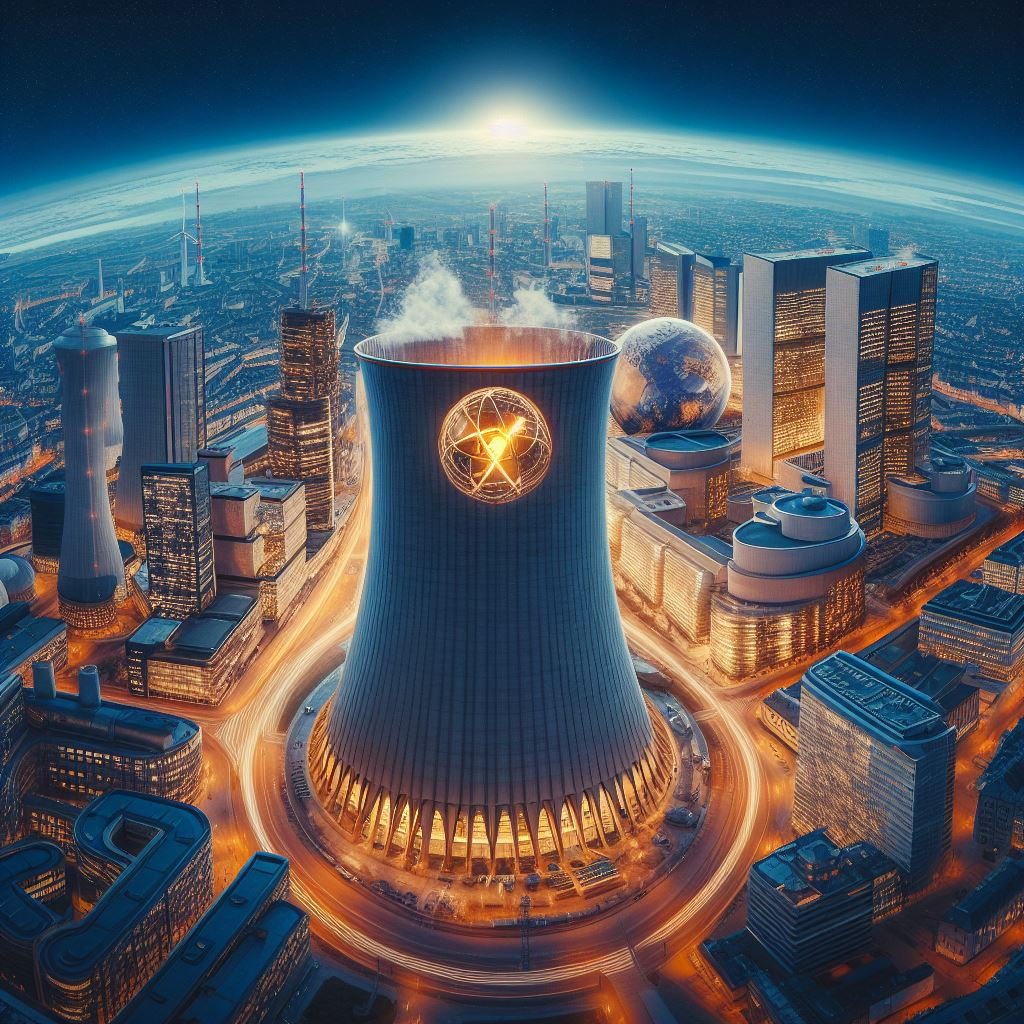The momentum for nuclear power surged forward as world leaders from over 30 nations alongside the EU convened at the inaugural Nuclear Energy Summit in Brussels.
The momentum for nuclear power surged forward as world leaders from over 30 nations alongside the European Union convened at the inaugural Nuclear Energy Summit in Brussels. This historic gathering, the first-ever high-level meeting dedicated solely to nuclear energy, follows the pivotal role of nuclear power at last year’s UN Climate Change Conference (COP28).
Representatives from diverse nations underscored the critical role of nuclear power in achieving energy security, and climate objectives, and fostering sustainable development. Key priorities identified for long-term success included increased financing, workforce development, and proactive support for countries entering the nuclear arena.
In his opening address, Rafael Mariano Grossi, Director General of the International Atomic Energy Agency (IAEA), co-chairing the Summit with Belgian Prime Minister Alexander de Croo, emphasized the urgency for action. Grossi stressed, “Merely acknowledging nuclear’s necessity isn’t sufficient. Political leaders must cultivate environments conducive to nuclear development. Failure to act decisively risks squandering nuclear’s potential to drive the green transition.”
High-level discussions at the Summit tackled a range of issues, including technology-neutral approaches and regulatory frameworks favoring clean energy sources without bias. President Emmanuel Macron of France highlighted the imperative of reducing CO2 emissions, enhancing energy security, and fostering competitiveness through nuclear power. Currently, nuclear energy contributes approximately 25% of global low-carbon electricity, necessitating substantial expansion to achieve net-zero carbon emissions by 2050.
Turkish Minister of Foreign Affairs Hakan Fidan emphasized Turkey’s commitment to nuclear energy, citing the Akkuyu Nuclear Power Plant’s potential to satisfy 10% of the country’s electricity demand, with plans for further expansion.
Mark Rutte, Prime Minister of the Netherlands, noted the evolving perceptions of nuclear energy, emphasizing its indispensability alongside renewable sources for a reliable, carbon-free energy supply.
In a pre-Summit engagement, Grossi, de Croo, and Belgian Minister of Energy Tinne Van der Straeten engaged with over 70 young activists advocating for nuclear and renewable technologies, highlighting the pivotal role of nuclear power in the clean energy transition.
The European Commission’s recent launch of the European Industrial Alliance on Small Modular Reactors (SMRs) aims to accelerate development and deployment, aligning with the imperative to bolster investments in nuclear energy.
Fatih Birol, Executive Director of the International Energy Agency, echoed projections of record-high nuclear power generation by 2025, signaling a resurgence in nuclear energy.
Industry stakeholders pledged support for governmental efforts to expand nuclear power, emphasizing collaboration in facility operation, construction, and infrastructure development.
Panel discussions delved into various aspects of nuclear energy, including capacity expansion, technological advancements, fuel cycle innovations, and financing mechanisms to foster a fair clean energy market.
Melanie Nakagawa, Chief Sustainability Officer at Microsoft, stressed the importance of corporate partnerships in driving clean electricity demand, highlighting collaborations with Google and Nucor toward carbon-free electricity.
Discussions also addressed the need for government-industry collaboration in advancing fusion energy, with optimism expressed for its feasibility within the next decade.
China, represented by high-ranking officials, unveiled ambitious plans to significantly expand nuclear capacity, leveraging a mix of conventional and innovative technologies to address climate change and ensure energy security.
In his closing remarks, Director General Grossi emphasized the Summit’s pivotal role in catalyzing global investment in nuclear energy, with the IAEA committed to supporting this transition envisioned for peace and prosperity.
The Nuclear Energy Summit in Brussels marks a significant milestone in the global dialogue on nuclear energy, signaling a renewed commitment to harness its potential for a sustainable future. As nations strive to meet their climate targets and energy needs, nuclear power emerges as a crucial component of the clean energy transition, poised to play a pivotal role in shaping the energy landscape of tomorrow.
